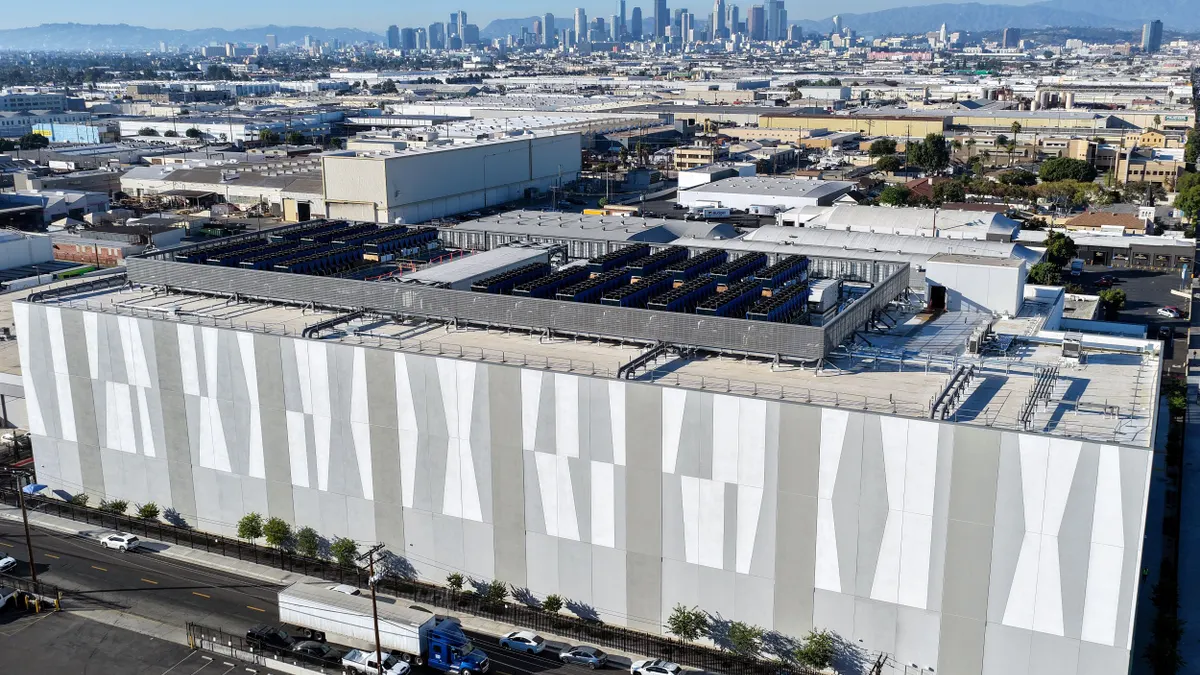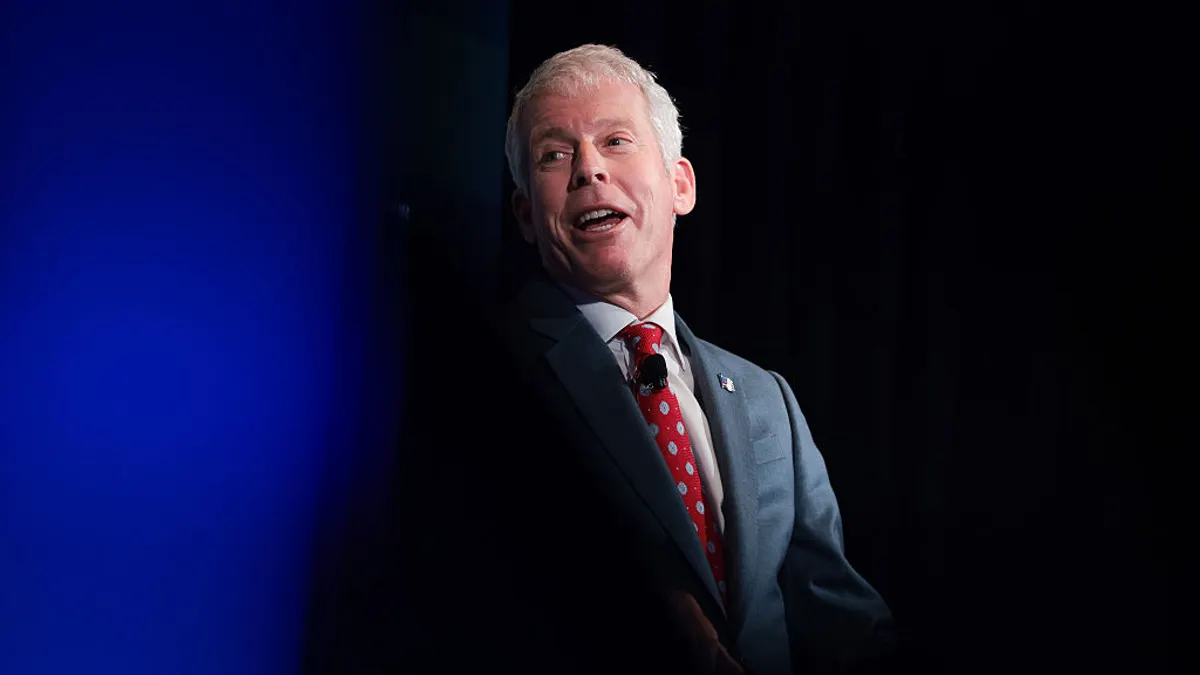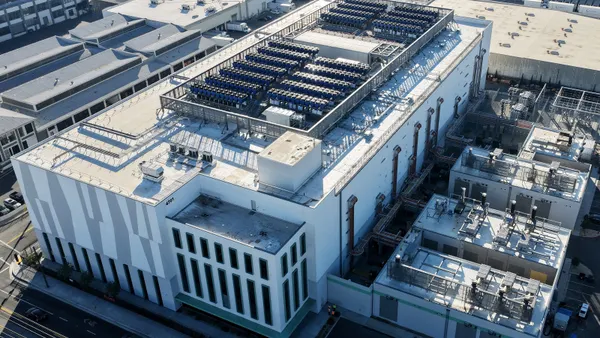Demand response aggregator Voltus has filed a complaint with the Federal Energy Regulatory Commission challenging Midcontinent Independent System Operator (MISO) tariff provisions that allow states to block third party aggregators from participating in wholesale markets.
Experts say the practice is common in other whole wholesale energy markets, as technology has advanced since state opt-out provisions were approved. In MISO, Voltus says the change could unlock thousands of megawatts of demand response capacity.
The prohibitions were intended to alleviate concerns regarding implementation issues for operators, with regard to planning and transparency for utilities responsible for reliability. If Voltus prevails, the decision would allow demand response aggregators in MISO to participate in both retail programs run by utilities and bid into wholesale markets.
"This is really all about increasing competition and unleashing market forces in a space where they've been constrained," said Earthjustice staff attorney Aaron Stemplewicz. The group is representing Voltus in the case.
Prohibitions date back to Order 719
MISO's tariff prohibitions are rooted in FERC Order 719, which required wholesale market operators to receive demand response bids from aggregators — except when state regulation barred such participation.
According to Voltus, aggregators could be delivering over 9,000 MW of demand response in MISO states, if not for the opt-outs. The company says if it were delivering the same demand response that utilities currently provide "Voltus would be saving ratepayers $130 million per year, while delivering better quality service via its technology platforms."
"It would mean more reliable and less expensive megawatts of demand response in all MISO states," said Voltus CEO Gregg Dixon.
Order 719 was issued in 2008, and in 2009 and 2010 MISO states adopted what were supposed to be "temporary" prohibitions — but then "there was really no fact finding beyond that," explained Stemplewicz. The prohibitions remained in place.
He says Voltus has brought its complaint forward now, more than a decade after Order 719, because there is recent and "clear" precedent to reverse the allowance of opt-outs, in FERC's recent Order 2222 and litigation surrounding FERC Order 841.
MISO, in a statement, said it believes its tariff and demand response provisions "continues to meet legal and regulatory requirements. We will respond to the complaint at FERC and provide any assistance in understanding the issues as FERC may direct."
In Order 841, FERC opened up wholesale market participation to storage resources and was later challenged for not including state opt-outs. The D.C. Circuit concluded in July, however, the effort to force opt-outs "invalidly invades the federal agency’s exclusive domain."
"The same principle applies here, the states are targeting FERC’s statutory domain by carving third party aggregators of demand response out of MISO’s wholesale market," Stemplewicz said. Similarly, FERC's recent Order 2222 rejected a broad state opt-out for distributed energy resources but left the opt out provision of Order 719 in place, he said.
The deadline for comment on the Voltus complaint is Nov. 9, but the Organization of MISO States (OMS) has requested an extension until Nov. 19. Once comments are in, MISO will have an opportunity to answer.
In an email, OMS Executive Director Marcus Hawkins said the group could not comment on the complaint as it is "still working through our internal processes to finalize our position."
Hawkins did say, however, that OMS has previously weighed in on this subject with regards to storage and Order 841. In that proceeding OMS warned that planning and operation of the distribution system by vertically-integrated utilities "can be greatly impacted by third-party resources without the requisite transparency."
In MISO, experts say most of the states have prohibited demand response participation in wholesale markets. But other regional transmission operators (RTO) have demand response aggregation in their markets.
Demand response aggregators already participate in both retail programs run by utilities and bid into wholesale markets in many RTOs, according to Brett Feldman, an associate director with Guidehouse Insights. The ability is "common in many other markets," he said, including PJM Interconnection, New York ISO, ISO New England, California ISO, and the Electric Reliability Council of Texas.
"MISO is the only market where most of the states ban third party participation of demand response," said Dixon.
"A lot of the issue in MISO is related to the fact that over 90% of the footprint is traditionally-regulated utilities," said Jessica Bell, a clean energy attorney at the State Energy & Environmental Impact Center at NYU School of Law.
According to Dixon "that's the single biggest factor," because utilities don't want third-party demand response and instead prefer to manage the resource themselves.
Technology enables more demand response competition
Stemplewicz said companies like Voltus could be providing more services to the MISO grid, "whether that's reliability, whether it be savings to ratepayers, or helping to more smoothly integrate renewable generators." Technology advancements since FERC's 2008 order have largely alleviated the implementation concerns, he said. There would also be mechanisms in place to ensure "there is no double counting" of demand response resources.
MISO officials, in their statement, noted that "technology is advancing at an unprecedentedly rapid pace which is true not only for DR technology but for all aspects of our industry requiring very complex layered solutions." The grid operator said its role is to "integrate what is approved into the marketplace."
The prohibitions mean limited competition, say aggregators.
"There is no competition so we see the quantity and quality of products are severely diminished," said Stemplewicz. He said this is "particularly important" in MISO, as the grid operator is "increasingly dependent on demand response resources."
Demand response "is one of several tools we use to help manage the increased uncertainty and variability that has come with a changing landscape," MISO officials said, "but there are others as well." They say those include: increased coordination with transmission seams partners, stakeholders and distribution operators, changing market products, incentive structures and planning processes to better align with efficiency and future reliability needs.
Earthjustice requested FERC fast track the case, in hopes the commission can make a decision before MISO's 2021-2022 planning resource auction that takes place in March of each year, to give Voltus and other aggregators the opportunity to participate.






















